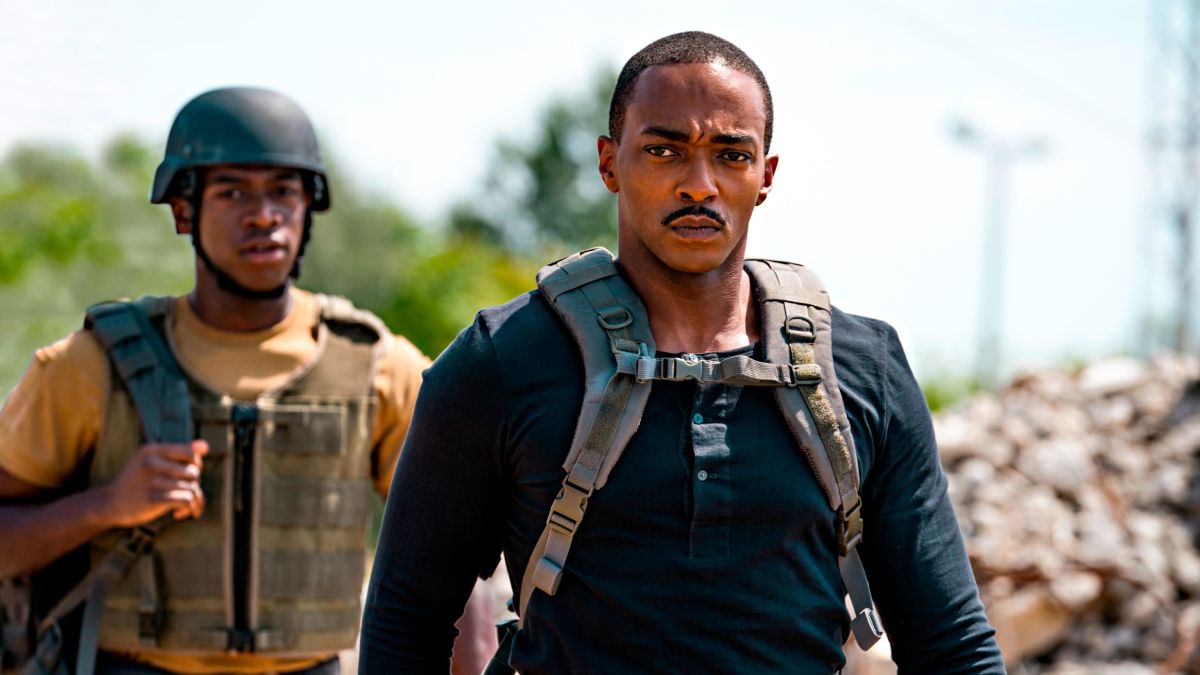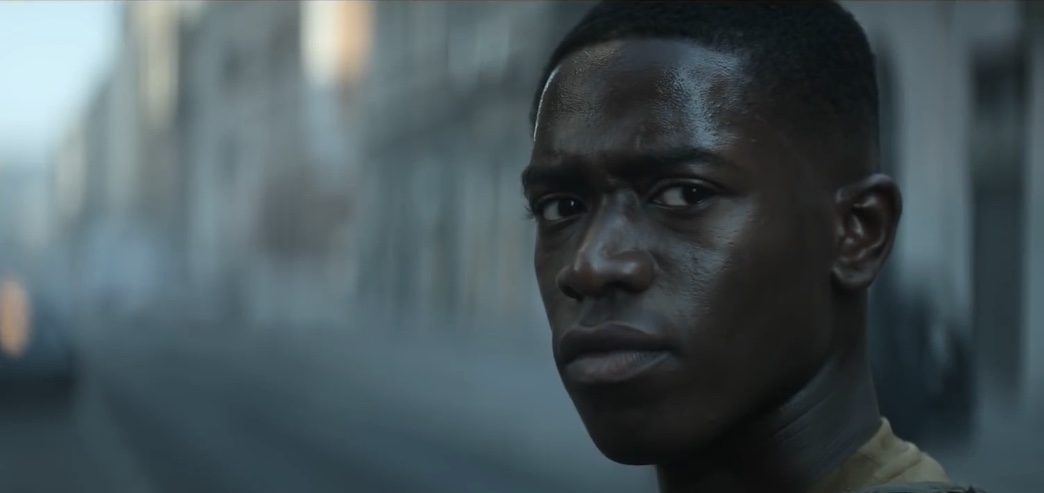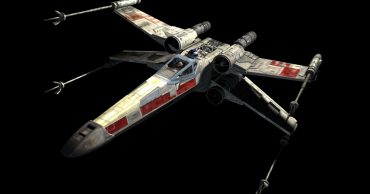
credit: Outside the Wire
There are a few reasons why war shouldn’t be relegated to little more than a video game, and a lot of them have to do with the fact that this can disconnect the people fighting from the fact that there are real people on the ground whose lives are at stake. When Harp, a drone pilot who is good at his job but exercises poor judgment upon releasing a missile at an enemy target without permission, he ends up killing two soldiers that were down but still very much alive. For his mistake, Harp is taken off of drone detail and sent into the field to serve under Captain Leo, a highly sophisticated android who is charged with finding the man responsible for the US being in Russia at that time. Along the way, Harp learns a lot of valuable lessons that he might have lost sight of during his time as a drone operator, as his time on the ground reminds him of what type of ramifications his long-distance attacks have wrought and how many lives have been lost and forever altered by this style of fighting.

credit: Outside the Wire
There are a lot of questions about humanity and what it really means to be human to one another.
One would think that an android wouldn’t know much about humanity save what can be learned from a download, but Captain Leo, in the manner of many other androids that have come along in the movies, has a distinct understanding of what makes a person human and what it is that might be missing in others. Despite being a machine, he’s seen and learned far too much during the war to ignore the fact that humans are violent creatures and will likely be the end of themselves. But as Harp continues to learn and compare his own personal store of knowledge with Leo’s, he continues to question the Captain’s words and beliefs, sometimes to his own detriment since it’s still apparent that Harp has spent too much time flying drones and not enough time with his boots on the ground. This new perspective definitely plays with his sense of morality, but it also wakes him up eventually to the reality of his situation.
Captain Leo has an agenda, there’s no doubt of that.
Despite everything he says and does, Leo has his own agenda. That much is clear. He has his own mission to accomplish, and when Harp takes what is supposedly an inhibitor chip from Leo’s back, it’s enough to make a lot of people wonder since the fact that Leo is government property and that he’s capable of forming his own thought processes, feels like a danger that’s been there the entire time but hasn’t been addressed. When it’s revealed after a bombing strike meant to take out the main villain that Leo survived and destroyed what was in actually a tracking chip, Harp has a hard decision to make as he suddenly realizes that Leo is going for the nukes that they were attempting to obtain the codes for and that his goal is far more dangerous than Harp was led to believe. What’s really amusing about this is that much of what Leo was up to was hidden in the words he spoke to Harp early on when they first met, but given that many likely believed Leo to be the good guy, no matter how severe he was, the point was lost.

credit: Outside the Wire
Anthony Mackie doesn’t play a very convincing villain.
It could be that he’s a little too likable in any role he takes on, but Mackie usually comes off better as a good guy or someone who’s neutral in the situation that’s presented. He’s not a bad actor, not even close, but the fact is that painting him as a villain makes it appear as though he’s either a man of limited intelligence, as it was in Pain and Gain, or that he has a reason for doing what he’s doing, even if it’s flawed and can’t be fully understood by anyone else. When Captain Leo breaks bad there is a reason, and it’s because the USA is seen, once again, as a bully that imposes itself upon others throughout the world when they’re not really needed. There are a lot of arguments that can stem from this, but at the moment, it’s enough to think that if the US didn’t intervene in some conflicts, it might be preferable.
By the end, Harp has a better understanding of what war is really like.
Experiencing war via a drone screen is a part of combat and has been for a little while, but it’s a little too easy to disconnect from the real world. Getting out and having one’s boots on the ground is sometimes necessary to gain perspective.
Pain and Gain
 Follow Us
Follow Us





